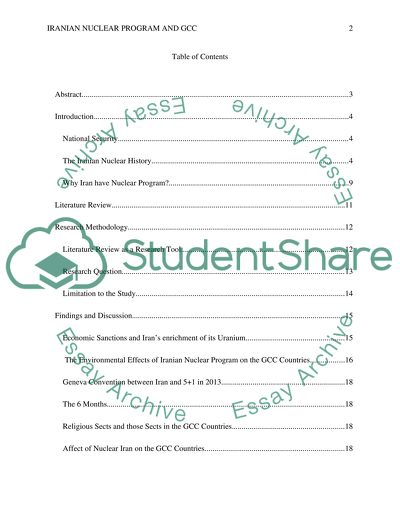Cite this document
(“How Does the Iranian Nuclear Program Affect the GCC Countries National Research Paper”, n.d.)
Retrieved from https://studentshare.org/social-science/1640114-how-does-the-iranian-nuclear-program-affect-the-gcc-countries-national-security
Retrieved from https://studentshare.org/social-science/1640114-how-does-the-iranian-nuclear-program-affect-the-gcc-countries-national-security
(How Does the Iranian Nuclear Program Affect the GCC Countries National Research Paper)
https://studentshare.org/social-science/1640114-how-does-the-iranian-nuclear-program-affect-the-gcc-countries-national-security.
https://studentshare.org/social-science/1640114-how-does-the-iranian-nuclear-program-affect-the-gcc-countries-national-security.
“How Does the Iranian Nuclear Program Affect the GCC Countries National Research Paper”, n.d. https://studentshare.org/social-science/1640114-how-does-the-iranian-nuclear-program-affect-the-gcc-countries-national-security.


